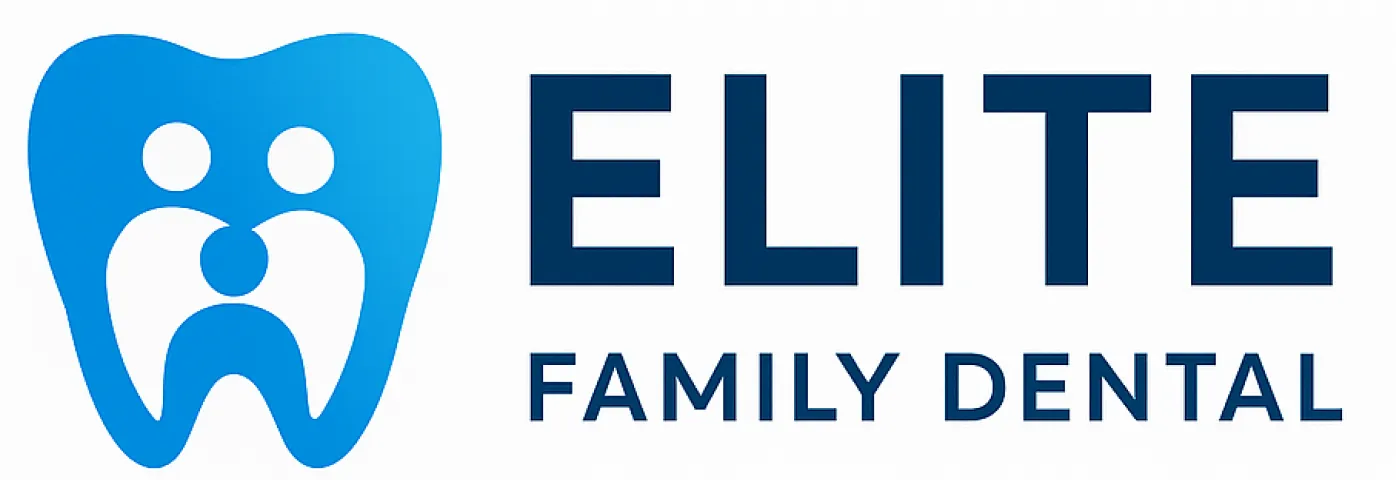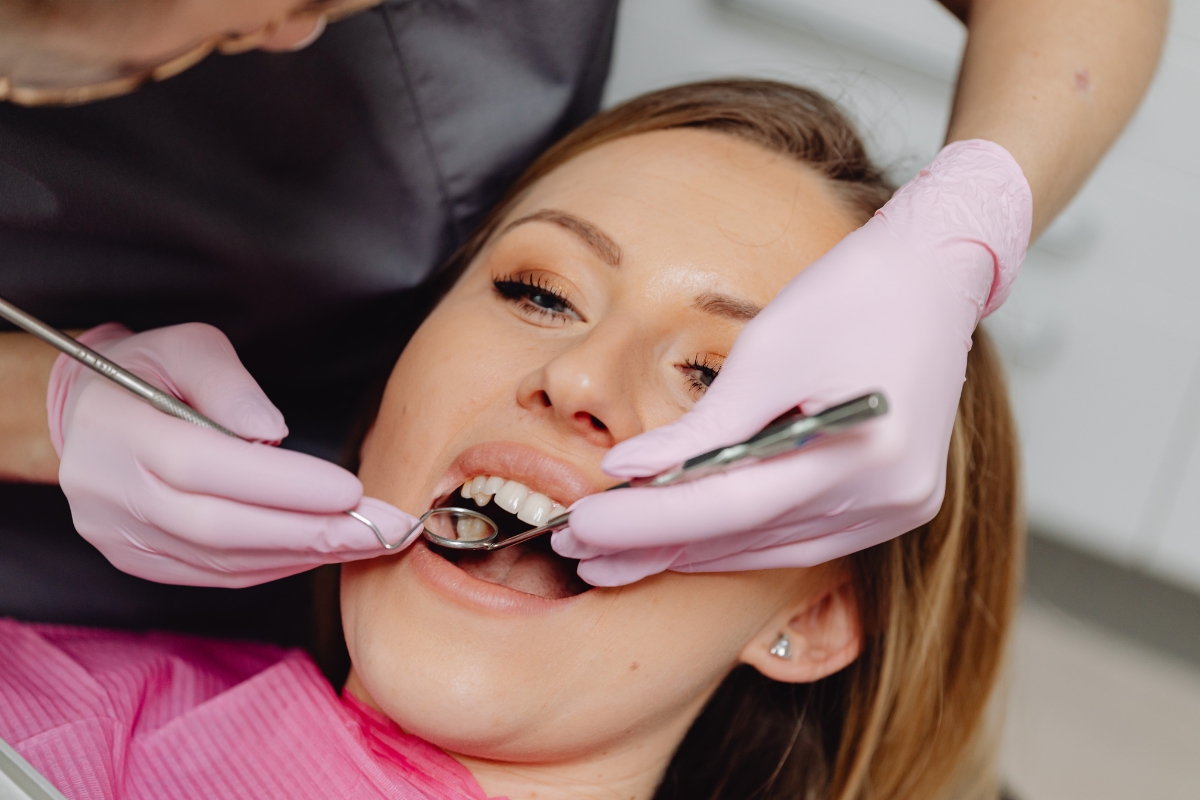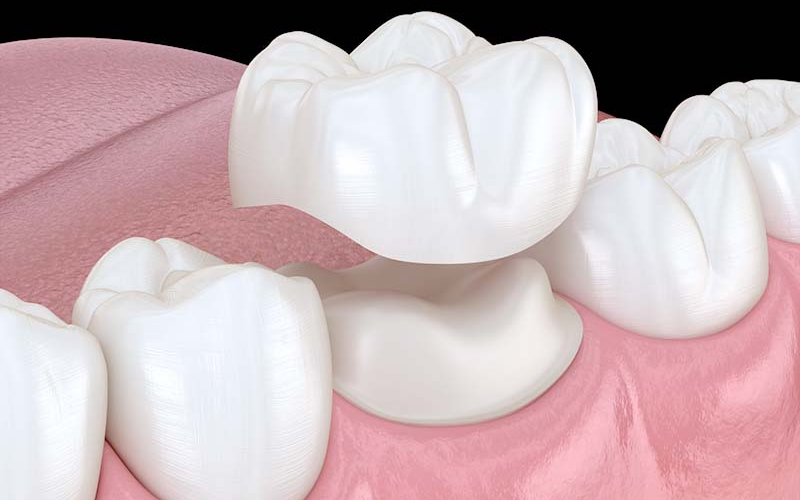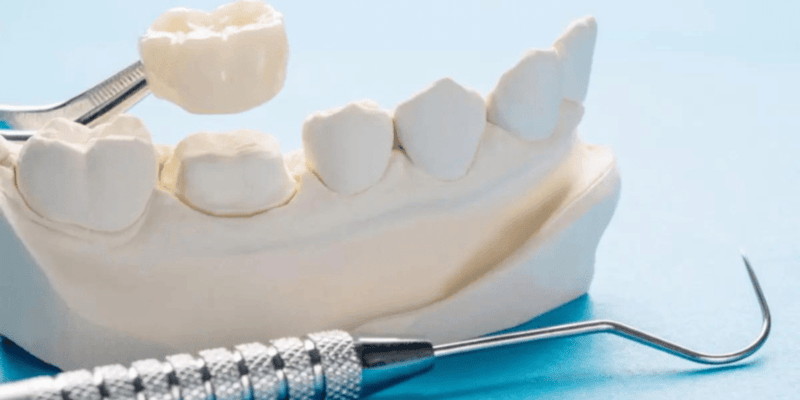6287 Taylorsville Rd Building #2, Fisherville, KY 40023
How To Care For Your Dental Crown: Maintenance Tips For Longevity

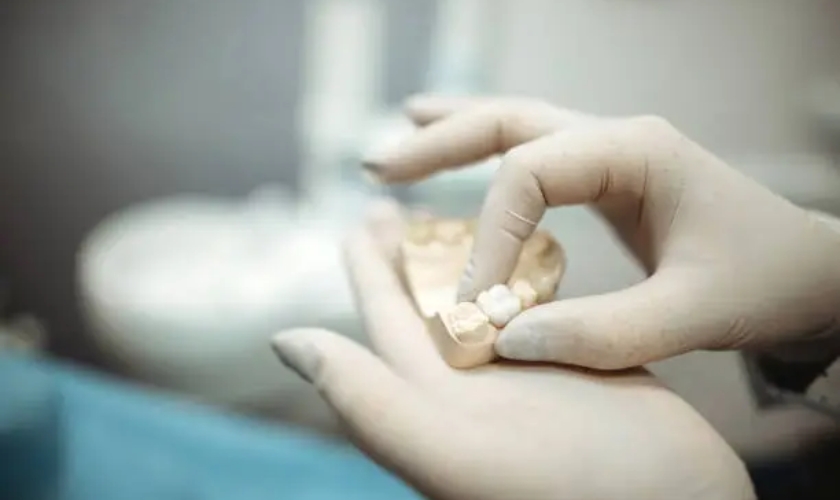
How To Care For Your Dental Crown: Maintenance Tips For Longevity
A dental crown is a fantastic way to repair the functionality and appearance of a damaged or decayed tooth. Whether you have a crown on a molar that endures heavy chewing forces or on a front tooth for aesthetic purposes, proper care is crucial to ensure its longevity.
While crowns are designed to be durable, they are not indestructible. With the right care and maintenance, you can extend the life of your dental crown and keep your smile looking and feeling its best.
In this blog, we’ll explore essential maintenance advice on how to take care of your dental crown and maximize its lifespan.
Tips For Daily Care
1. Practice Good Oral Hygiene
- Brush Frequently: Try to brush your teeth twice a day with a soft-bristled toothbrush. Pay special attention to the area where the crown meets your gum line, as plaque can accumulate in this area and lead to decay of the underlying tooth.
- Use Fluoride Toothpaste: Fluoride toothpaste helps strengthen the tooth beneath the crown and reduces the risk of decay. It’s particularly important if your crown is on a natural tooth rather than an implant.
- Floss Daily: Flossing is crucial for removing food fragments and debris in the spaces between your teeth around your crown. Be gentle when flossing around the crown to avoid dislodging it. An interdental tool or floss threader can be used to clean the area thoroughly.
2. Avoid Hard and Sticky Foods
- Hard Foods: Nuts, ice, and hard sweets may all be biting surfaces, put excessive pressure on your crown, and may cause it to crack or chip. Try to chew such foods with your natural teeth instead of the crowned tooth.
- Sticky Foods: Foods like caramel, chewing gum, and sticky candies can adhere to your crown and create the risk of pulling it off. These foods can also contribute to the accumulation of plaque and decay around the crown.
3. Use a Mouthguard if You Grind Your Teeth
- Bruxism (Teeth Grinding): If you grind your teeth at night, it can wear down your crown prematurely and even cause it to crack. A custom-fitted mouthguard can protect both your crown and your natural teeth from the effects of grinding.
- Sports Mouthguard: If you play contact sports, wearing a mouthguard is essential to protect your dental crown from damage due to impact or injury.
4. Visit Your Dentist Regularly
- Regular Check-Ups: Routine dental check-ups are essential for monitoring the condition of your crown and the tooth beneath it. Your dentist can identify wear indicators early on, decay, or damage and take steps to prevent more significant issues.
- Professional Cleanings: Plaque and tartar are removed during professional dental cleanings that you might miss with regular brushing and flossing. This is particularly important around the gum line, where crowns are most vulnerable.
5. Address Any Issues Promptly
- Sensitivity: Some people experience sensitivity to hot or cold after getting a crown. If this persists or worsens, it could indicate an issue with the crown or the underlying tooth. Contact your dentist
For an evaluation to ensure everything is in order.
- Loose Crown: If your crown feels loose or shifts when you bite down, it’s crucial to see your dentist immediately. Bacteria can infiltrate a loose crown and cause decay or infection in the underlying tooth.
- Cracks or Chips: Don’t disregard any chips or cracks you find in your crown. Even small damage might cause bigger problems if left untreated. Your dentist may be able to repair the crown, or in some cases, replacement might be necessary.
6. Avoid Using Your Teeth as Tools
- No Biting on Objects: It’s tempting to use your teeth to open packages or bite off tags, but this can put unnecessary stress on your dental crown. Always use the proper tools rather than your teeth to avoid damaging your crown.
- Avoid Nail Biting: Nail biting is another habit that can damage your crown over time. It’s best to break this habit to protect both your crowns and natural teeth.
7. Watch Out for Gum Health
- Gum Care: The health of your gums is essential to the life of your dental crown. Receding gums can expose the base of the crown or the underlying tooth, making them more susceptible to decay and other issues.
- Use an Antibacterial Mouthwash: An antibacterial mouthwash has the potential to lessen the microorganisms that cause gum disease. This, in turn, protects the integrity of your crown and the health of your gums.
8. Consider Your Diet
- Balanced Diet: A well-balanced diet that is high in minerals and vitamins supports overall dental health, including the health of your crowned tooth. Calcium, vitamin D, and phosphorus are particularly important for strong teeth and bones.
- Limit Sugar Intake: Sugary foods and drinks contribute to plaque build-up and decay, which can undermine the tooth under your crown. Try to limit your consumption of sugary items and always brush your teeth afterward.
9. Maintain Your Dental Crown with Proper Products
- Soft-Bristled Toothbrush: Use a toothbrush with gentle bristles to prevent scratching the surface of your crown. Hard bristles can wear down the material of the crown over time.
- Non-Abrasive Toothpaste: Some toothpastes contain abrasive ingredients that can damage your crown. Choose a non-abrasive, fluoride toothpaste that is gentle on your crown.
- Fluoride Rinse: A fluoride rinse can help strengthen the tooth beneath the crown and prevent decay. It’s an excellent addition to your daily oral hygiene routine.
Caring for your dental crown properly is essential to ensuring its longevity and maintaining your overall oral health. By practicing good oral hygiene, avoiding damaging foods and habits, and seeking prompt dental care when issues arise, you can protect your dental crown and take pleasure in a long-lasting grin.
Regular dental check-ups and professional cleanings are crucial to detecting potential problems early and keeping your crown in top condition.
Remember, while a dental crown is a durable and effective solution for restoring your tooth, it still requires the same level of care as your natural teeth. By following these maintenance tips, you can maximize the lifespan of your crown and keep your oral health in excellent shape.
